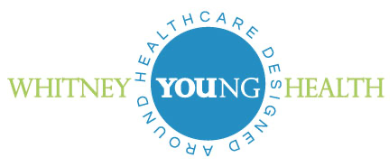
Yes, Recovery is Possible
One day you go to visit a friend. Your friend has been acting very “different” lately. Your friend used to be very enthusiastic and engaged, but now, your friend seems distant, irritated, and sad, so your goal during this visit is to see if you could cheer up your friend. Unfortunately, when you arrive, you see that your friend’s eyes are very puffy and your friend has a hard time making eye contact with you. Your friend also appears a bit anxious and waves you off when you ask how they have been doing.
What would you do?
Is the friend a) having trouble at school b) having trouble at home c) suffering from a mental illness that is causes A and C OR d) abusing drugs and other substances that is causes A and C to occur?
Answer: Either one of those choices could be the reason why your friend’s behavior has changed. The real question is, how often is it that someone thinks the reason for changes in one’s behavior could be due to choices C or D? The behavioral changes that the friend in the scenario above is experiencing are changes someone with a mental illness or someone suffering from behavioral changes due to substance abuse may experience. In an article published by the National Alliance on Mental Illness, a recent survey released by the American Psychiatric Association (APA) was cited. This survey found that 44% of the public report knowing little to nothing about mental illnesses. It is important that people learn to acknowledge the possibility that someone may have a mental illness or is abusing drugs when there is a drastic change in their behavior, rather than thinking that someone is just having a rough week. It is also important to know that people suffering from mental illnesses or behavioral changes due to drug and other substance abuse have highly successful intervention and treatment methods available to them. There are thousands of institutions across the nation that offer prevention, treatment, and recovery programs to people suffering from such conditions and there are even more success stories that resulted from the help and support received. In order to bring attention on the successes, progress and accomplishments made in the lives of those recovering from such conditions, as well as educate the community, the month of September is recognized as National Recovery Month.
What you need to know
Here are some statistics according to the 2014 National Survey on Drug Use and Health published by the Substance Abuse and Mental Health Services Administration (SAMHSA) on the occurrence of mental illnesses and substance abuse cases in the U.S. population:
- Approximately 21.5 million people ages 12 and older had a substance use disorder (SUD) in the past year.
- Approximately 17.0 million people had an alcohol use disorder
- Approximately 7.1 million people had an illicit drug use disorder
- Approximately 2.6 million had both an alcohol use and an illicit drug use disorder
- 1 in 5 adults aged 18 or older, which account for approximately 43.6 million adults, had any mental illness within the past year and 9.8 million adults of that group were considered to have a serious mental illness.
These statistics tell us that there are a lot of existing people dealing with a mental illness or drug use disorder. People suffering from a mental illness or behavioral changes due to substance abuse may feel misunderstood, helpless and reluctant to find help due to the negative stigmas that surround people with these conditions. People with such conditions need to be aware that help, improvement and recovery are within arm’s reach, and that they are not limited to the lives that their condition limits them to.
What next?
- Talk to your primary care physician If you or someone you know is dealing with a mental illness or a substance use disorder, your primary care physician can assist you in developing the right treatment plan you would need, which may include a referral to a psychiatrist or neurologist.
- Talk to your friend or loved ones If you are someone or know someone suffering from a mental illness or a behavioral change due to substance abuse, talk to a friend or loved one that can support you and help you seek treatment. Unacknowledged and untreated illnesses can lead to relationship damage, unemployment and further health complications that could have easily been avoided.
- Find out more information There are plenty of resources online that can provide you with more information about mental illnesses or substance abuse disorders. Agencies such as the Substance Abuse and Mental Health Services (SAMHSA) and organizations such as the National Institute of Mental Health (NIMH) offer plenty of recent statistics and research in regards to mental health and substance use in the U.S. and the progress being made to reduce these trends. You can also find personal success stories of people who have progressively recovered from their mental illness or substance use disorders.
Your mental and behavioral wellbeing are very important. It’s never too late to take control of your health status.
